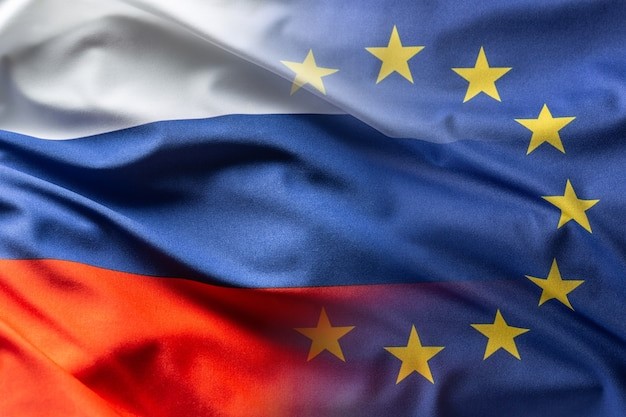The US told the European Nations that it has a beautiful money-making scheme. The pandemic ravaged European nations immediately agreed. 2 years later, the US is making money and Europe is counting its breaths. The US Recent assessments reveal Russia’s economy has weathered Western sanctions with unexpected resilience. Contrarily, the European Union’s (EU) economic strife has exacerbated, inciting disillusionment among the working class towards Ukrainian support.
The EU is now depicted as the 21st century’s most significant political fiasco. Once vibrant with leftist mobilizations, Paris now observes a muted discourse on the economic, political, and trust deficit besieging the world’s foremost economic consortium. Europe’s predicament worsens as it faces setbacks in the conflict, with Ukraine’s situation deteriorating. Russia’s apparent ascendancy, underscored by its thriving economy, contrasts sharply with Europe’s stagnating economy. The potential advancements by Russia could precipitate catastrophic outcomes for Europe, should Ukraine’s governance falter. This narrative portrays a dire picture for Europe, contrasted against a surprisingly resilient Russia, marking a pivotal moment in contemporary geopolitical dynamics.
Join us on Telegram: https://t.me/tfiglobal
The European Union finds itself on the precipice of a conflict not quite distant, as opposed to the United States’ more detached concern. The notion of a crumbling Ukraine instills dread across European capitals from Warsaw to Paris, where the idea of dispatching troops, as floated by President Macron, skirts the boundaries of reason, perhaps betraying a hint of desperation to navigate the crisis. This air of urgency seems to pervade other European governments, who have arguably floundered in rallying their citizenry behind the sacrifices necessitated for the democracy of a Neo-Nazi Ukraine.
Meanwhile, across the pond, American confidence in economic sanctions reducing the Russian ruble to mere rubble and ostracizing the nation from global energy markets appears to have been overly optimistic. Contrary to predictions, Russia not only withstood the economic onslaught but also carved out new energy partnerships with giants like China and India. This scenario has turned expectations on their head, showcasing a resilience that has perhaps caught many Western policymakers off guard. In this landscape, the stark contrasts in geopolitical strategies and their outcomes paint a picture of unexpected turns and the unpredictable nature of international relations.
Read More: EU was expecting to MILK Germany, got MILKED instead
In an almost comedic recurrence, the United States finds itself in the peculiar position of metaphorically shooting itself in the foot, a spectacle that seems to have become a regular feature in international politics. European leaders, notably French President Macron and German Chancellor Scholz are sidestepping the crumbling of their economic stronghold, orchestrated at Washington’s bidding. The U.S. not only sparked the conflict but also played a pivotal role in establishing a nationalist regime in Kiev, eager to clash with Moscow. This scenario culminated in a full-blown conflict in February 2022. While France and Britain were complicit, supporting U.S. maneuvers, the spotlight remained firmly on the American strategy that inadvertently invited consequences it seemingly did not foresee.
In an almost whimsical twist of fate, the United States, initially confident of a swift victory, finds itself mired in a conflict that has unfolded far from favorably. This miscalculation still leaves the US somewhat insulated from the repercussions that Europe faces head-on. As if in a tragicomic play, European nations, having trailed behind the US with an almost childlike trust, now confront the sobering reality of their decisions.
Read More: EU ’s unexpected SHOCKER to Ukraine.
The unfolding drama has not spared the working class of the European Union, who find themselves increasingly disillusioned with the conflict against Russia, especially as they bear the brunt of sanctions that have severed access to affordable and dependable Russian energy. This economic strain is vividly illustrated by Germany’s grim adjustment of its growth forecast for 2024, a mere 0.2%, down from an optimistic 1.3%, a revelation that has Germany’s Vice-Chancellor lamenting the country’s “dramatically bad” performance.
As these events unfold, the narrative hints at an impending “reckoning,” a consequence of following the US into a poorly gauged conflict. The script reads like a cautionary tale of unintended consequences, where the line between allyship and miscalculation blurs, leaving European protagonists to grapple with the economic aftermath of their geopolitical entanglement.
